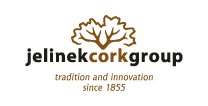Guest Post by Henry Jelinek, Jr. the Fourth Generation Leader of Jelinek Cork Group
Oh, how times have changed!
Being in the cork business, we were, of course, more conscious of environmental issues than most folks. We prided ourselves then, as we do to this day that we were dealing with a totally natural and sustainable material like cork.
When my wife and I were first married (nearly 50 years ago), it was in the days when sustainability and recycling opportunities were not being taken seriously. Most folks were not aware nor worried as to what was thrown into garbage cans. In fact, when it was only the two of us at home, we were hard-pressed to fill up one large garbage bin in any given month. Of course, as the family grew, one bin turned to two, two bins turned to three, and finally, we needed four large bins a month hauled off to the dump.
Today my wife and I are again home alone, empty nesters except when the grandkids come to stay for a sleepover from time to time. And yet, even now that it is just the two of us, we still generate the same amount of trash -- four large bins a month. How is this possible? We sort our garbage and have multiple recycling bins, but are still producing the same amount of trash as we were when we were a family of five.
How can that be? What’s going on?
I’ve determined the cause, and it has become my pet-peeve. Packaging materials create the majority of our garbage, and the overwhelming majority of those materials is some form of plastic. It drives me crazy. What a costly and environmental waste just to make some products look more appealing to the consumer.
Plastic packaging materials are creating a potential environmental disaster. There is still no reliable universal plastic recycling program in place. At this point, less than 10% of the world’s plastic is recycled. Most plastics are not biodegradable and take nearly 500 years to degrade. We don’t have the luxury of time to get this right.
The harm of these plastics is well underway now—millions of tons of plastics now filling our rivers, lakes, and oceans. One study predicts that at current levels of plastics being discarded, by 2050, there will be more plastics in the world waters than there are fish. The problem is primarily with single-use plastics – namely plastic packaging materials.
Small steps are being taken
Better and more aggressive recycling programs
Using reusable shopping bags
Eliminating plastic straws
And more small steps we have taken away from plastic.
All of these steps help to various degrees. Still, environmentally friendly alternatives to plastic packaging are needed to make a dramatic difference. These alternatives may be somewhat more costly, but ultimately the world and those of us on it will be healthier and happier.
Making sustainable packaging the norm will be up to businesses. It will be companies leading the way in sustainable packaging. In particular, small businesses with strong ties to their communities, and customers know how important this will be to their future.
Of course, cork will continue to play a big part as an ideal substitute for plastic packaging components. Natural cork closures and stoppers, cork boxes and containers, cork liners, and fillers plus numerous other cork packaging alternatives are already doing thier part in creating a better livable environment for everyone.
When designing your packaging, take a step back and think about the long term impact on your product on the planet. There are many sustainable packaging options, some like cork are classics, but others are new and exciting innovations. Talk with your design team about the importance of sustainability to your brand.
If you want more information about sustainable packaging, please contact us. We will do what we can to help you find solutions that will work for your budget.
